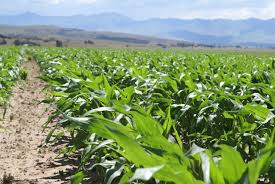Matatiele farming community to celebrate successful first harvest
The Ongeluksnek community in Matatiele will receive its 10% share from its first harvest as part of AsgiSA Eastern Cape’s (EC) dry-land cropping programme on Thursday, 11 March 2010.
The community will also be signing a social charter which will formalise relationships between the AsgiSA EC, farmers, government and other stakeholders. The charter outlines the roles and responsibilities of each partner in the agreement.
Community produces significant yield
The Ongeluksnek Farms Maize project produced a significant harvest from the 770 hectares (ha) planted last year and has expanded to 3,000ha this year. The project is spearheaded by AsgiSA EC together with the Matatiele Local and Alfred Nzo District Municipalities and the Department of Agriculture and Rural Development. The maize harvest, the first in the AsgiSA EC dry-land cropping programme, has generated excitement amongst farmers in the area.
90% of income to be invested into next season
As part of the agency’s reinvestment model, 90% of the income generated through the sale of the harvest is ploughed back into the following season. Communities then receive a 10% share. This reinvestment ensures sustainability of the project.
“We are comfortable with AsgiSA EC; they came at the right time when our fields have been lying fallow for a long time. We could not address hunger issues without cropping because in the rural areas cropping is our life. We are confident that for black farmers this is a step forward,” said Mzikayise Kibi Chairman of the Lekgetlane Co-operative.
The celebrations will be attended by the provincial leadership including the MEC for Agriculture and Rural Development Mbulelo Sogoni.
Matatiele has highest agriculture potential
The Matatiele area has the highest agriculture potential because of good soils and climatic conditions. This was affirmed with last season’s harvest when the project yielded the best and highest harvest.
Thursday’s celebrations are also aimed to attract investors; demonstrate the AsgiSA EC reinvestment model; share success stories on the project plan, evaluate existing gaps in projects and respond to challenges.
